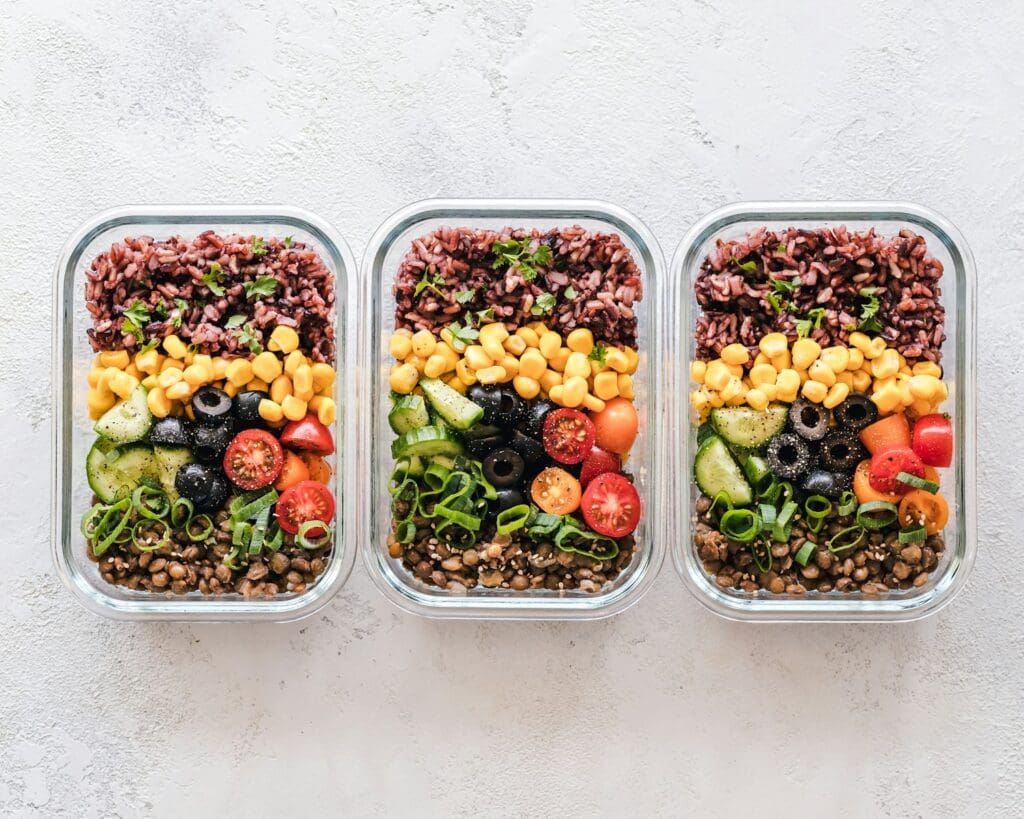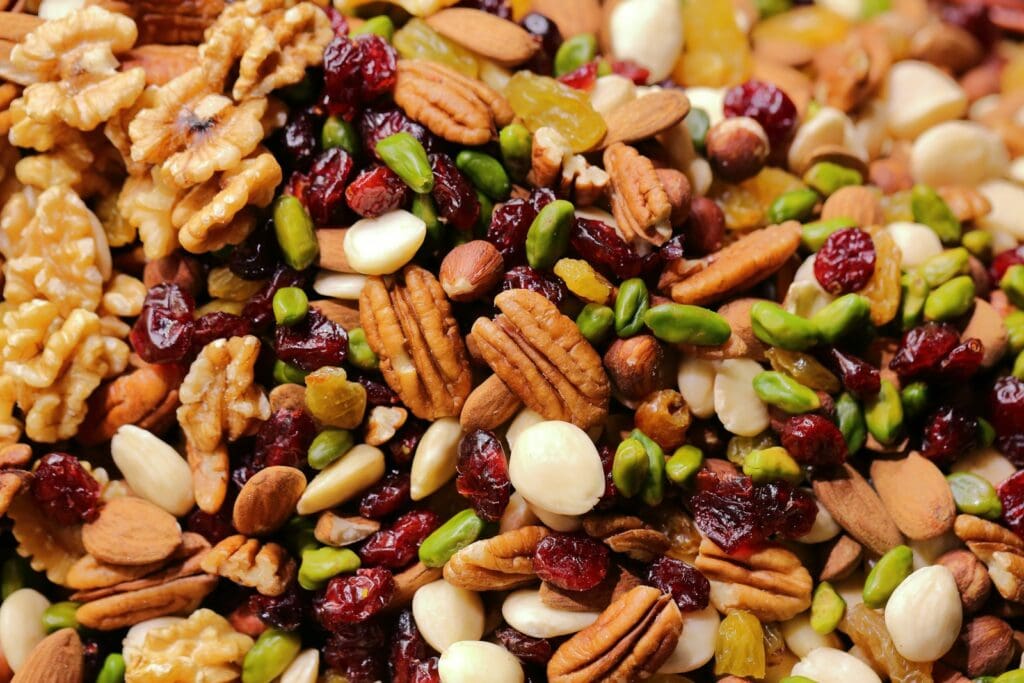Managing appetite and maintaining a healthy diet can be challenging in today’s fast-paced world. Whether you’re looking to lose weight or simply eat more mindfully, incorporating effective strategies to control hunger can make a significant difference.
In this article, we explore 15 simple yet powerful habits that can help you manage your appetite and make healthier food choices throughout the day.
15. Brush your teeth after meals

Brushing your teeth after meals can help curb your appetite by signaling to your brain that eating time is over. The minty flavor of toothpaste can also make food less appealing. Additionally, the act of brushing may reduce cravings for sweet snacks. This simple habit can be an effective strategy for controlling portion sizes and avoiding unnecessary snacking.
14. Plan your meals and snacks in advance

Meal planning can significantly reduce impulsive eating and overeating. By preparing balanced meals and healthy snacks ahead of time, you’re less likely to reach for convenient but unhealthy options when hunger strikes. This strategy helps maintain consistent portion sizes and ensures you have nutritious choices readily available throughout the day.
13. Avoid distractions while eating

Minimize distractions during meals to focus on eating and recognize fullness cues. Turn off screens, put away phones, and sit at a table. This mindful approach can help prevent overeating by allowing you to pay attention to your body’s signals and enjoy your food more fully. Eating without distractions promotes better portion control and satisfaction.
12. Spice up your meals

Adding spices like cayenne pepper, ginger, and cinnamon to your meals can help control appetite. These spices have thermogenic properties that boost metabolism and reduce hunger. Capsaicin in chili peppers, for instance, increases satiety and fullness. Experiment with different spices to find what works best for you.
11. Engage in regular physical activity

Regular exercise, especially high-intensity workouts, can help suppress appetite by reducing levels of ghrelin, the “hunger hormone,” and increasing peptide YY, which promotes satiety. Aim for at least 150 minutes of moderate-intensity aerobic activity or 75 minutes of vigorous-intensity aerobic activity per week to reap these appetite-curbing benefits.
10. Manage stress levels

Practice stress-reduction techniques like deep breathing, meditation, or yoga to curb stress-induced eating. Chronic stress can increase cortisol levels, leading to increased appetite and cravings for high-calorie foods. Regular exercise, adequate sleep, and social connections can also help manage stress and reduce emotional eating tendencies.
9. Get enough sleep each night

Aim for 7-9 hours of sleep nightly to regulate hunger hormones. Sleep deprivation increases ghrelin (appetite-stimulating) and decreases leptin (satiety-signaling), leading to increased hunger and calorie intake. Adequate sleep helps maintain hormonal balance, reducing cravings and overeating tendencies.
8. Include healthy fats in your diet

Incorporate unsaturated fats like avocados, nuts, and olive oil into your meals. These fats trigger the production of oleoylethanolamide (OEA) in the small intestine, which sends fullness signals to the brain. OEA also helps reduce appetite, promote weight loss, and lower blood cholesterol levels.
7. Sip on herbal tea between meals

Herbal teas like green tea, dandelion, and fennel can help suppress appetite and control cravings. These teas contain compounds that may boost metabolism, reduce hunger, and promote feelings of fullness. Sipping on calorie-free herbal tea between meals can also help you stay hydrated and avoid unnecessary snacking.
6. Chew your food thoroughly

Chewing your food thoroughly can significantly reduce food intake and increase feelings of fullness. Studies show that chewing each bite 40 times before swallowing can decrease hunger and food consumption by up to 15%. This simple strategy helps slow down eating, allowing your brain to register satiety signals more effectively.
5. Use smaller plates and bowls

Opt for smaller dinnerware to naturally reduce portion sizes. Research shows that using plates 8-9 inches in diameter can help you eat less without feeling deprived. This simple trick works by creating an optical illusion that makes your portions appear larger, satisfying your eyes and stomach simultaneously.
4. Practice mindful eating

Slow down and savor each bite to enhance satiety. Focus on the flavors, textures, and aromas of your food. Eat without distractions like TV or phones. This approach helps you recognize fullness cues earlier, potentially reducing overall intake. Mindful eating also promotes better digestion and a more positive relationship with food.
Read More: 10 Amazing Benefits of Cutting Down on Meat
3. Increase your fiber intake

Boost your fiber intake to curb appetite naturally. Soluble fiber slows digestion, promoting fullness and reducing hunger hormones. Aim for 25-30g daily from sources like oats, beans, and vegetables. Studies show fiber can decrease appetite by 5% and lower body weight by 1.3%. Start slowly to avoid digestive discomfort.
Read More: How to Organize a Meal Train for Your Loved Ones
2. Incorporate protein-rich foods into every meal

Adding protein to your meals can significantly reduce hunger and increase feelings of fullness. Aim for 25-30% of your daily calories from protein sources like lean meats, fish, eggs, and legumes. A high-protein breakfast, in particular, can help control appetite throughout the day and reduce evening snacking.
Read More: 9 Reasons We Overeat, and 9 Ways to Overcome the Urge
1. Drink a glass of water before meals

Consuming water before meals can effectively reduce appetite and calorie intake. Studies show that drinking 500 ml (about 2 cups) of water 30 minutes before eating can lead to decreased hunger and lower calorie consumption during the meal. This simple strategy may aid in weight management and promote better portion control.
Read More: Healthy Cravings: Guilt-Free Alternatives to Junk Food Classics





